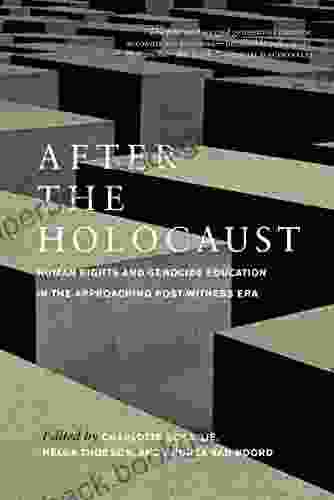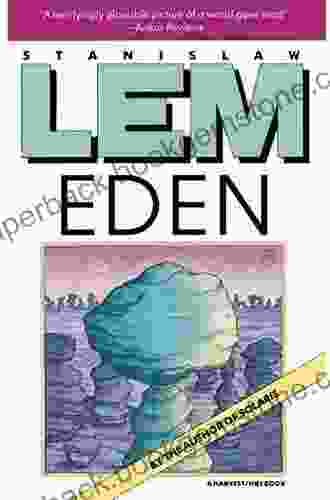Human Rights and Genocide Education in the Approaching Post-Witness Era: Preserving the Legacy and Fostering a Culture of Remembrance

As we approach the post-witness era of human rights and genocide education, it becomes imperative to reflect on the significance of preserving the legacy of witness testimony and fostering a culture of remembrance. Genocide survivors, eyewitnesses, and human rights activists have played a pivotal role in shaping our understanding of these atrocities, their root causes, and their devastating consequences. Their firsthand accounts provide a unique and irreplaceable source of knowledge and inspiration for future generations.
However, as the last generation of survivors passes on, the task of educating future generations about human rights and genocide falls to educators, scholars, and society as a whole. This transition to the post-witness era presents both challenges and opportunities for human rights and genocide education.
5 out of 5
| Language | : | English |
| File size | : | 6082 KB |
| Text-to-Speech | : | Enabled |
| Screen Reader | : | Supported |
| Enhanced typesetting | : | Enabled |
| Word Wise | : | Enabled |
| Print length | : | 320 pages |
| Lending | : | Enabled |
Challenges of Human Rights and Genocide Education in the Post-Witness Era
One of the primary challenges facing human rights and genocide education in the post-witness era is the loss of direct access to survivor testimony. Survivor testimonies provide a powerful and visceral connection to the horrors of genocide. They humanize the victims, challenge denial and distortion, and inspire empathy and compassion. Without the presence of survivors, educators and students may find it more difficult to convey the full weight and impact of these atrocities.
Another challenge lies in the potential for historical revisionism and the rise of hate speech. As time passes, the temptation to reinterpret or deny historical events can increase. This makes it crucial to equip students with the critical thinking skills necessary to evaluate historical evidence and resist biased or distorted narratives.
Furthermore, the post-witness era coincides with the rise of social media and digital technologies. While these tools can facilitate the dissemination of information about human rights and genocide, they can also amplify hate speech and discrimination. Educators must navigate these complex digital landscapes to ensure that students have access to accurate and reliable information.
Opportunities for Human Rights and Genocide Education in the Post-Witness Era
Despite these challenges, the post-witness era also presents opportunities for innovation and growth in human rights and genocide education. The absence of survivors can be a catalyst for developing new and creative approaches to teaching about these topics.
Technology can play a significant role in preserving and transmitting survivor testimonies. Virtual reality, for example, has the potential to immerse students in historical events and provide a more personal connection to survivors' experiences. Digital archives and online platforms can make survivor testimonies and educational resources widely accessible.
Intergenerational transmission of survivor testimonies is another crucial strategy for fostering a culture of remembrance. By creating opportunities for younger generations to learn from survivors and their descendants, we can ensure that the legacy of genocide is passed on firsthand. This can be facilitated through guest lectures, workshops, and community outreach programs.
Collaboration between educators, researchers, and human rights organizations is essential for developing effective and engaging educational programs. By pooling resources and expertise, we can create innovative curricula, develop teacher training programs, and conduct research to inform best practices in human rights and genocide education.
The transition to the post-witness era of human rights and genocide education presents both challenges and opportunities. By embracing innovative approaches, fostering intergenerational transmission of survivor testimonies, and collaborating across disciplines, we can preserve the legacy of these atrocities and foster a culture of remembrance that will inspire future generations to uphold human rights and prevent genocide.
It is our responsibility to ensure that the lessons of the past are never forgotten. By educating future generations about human rights and genocide, we empower them to challenge injustice, promote empathy, and build a more just and equitable world.
Call to Action
As educators, scholars, and citizens, we have a vital role to play in preserving the legacy of human rights and genocide education in the post-witness era. We urge policymakers, educational institutions, and community organizations to prioritize human rights and genocide education in their programs and curricula. Together, let us work to foster a culture of remembrance, challenge hate speech, and promote the universal values of human dignity, equality, and justice.
References
* United Nations Declaration on the Rights of Genocide Survivors and Victims * International Holocaust Remembrance Alliance (IHRA) Working Definition of Holocaust Denial and Distortion * Genocide Education Project (GENED) * The USC Shoah Foundation * The Cambodian Genocide Program at Yale University * The Armenian Genocide Museum-Institute
5 out of 5
| Language | : | English |
| File size | : | 6082 KB |
| Text-to-Speech | : | Enabled |
| Screen Reader | : | Supported |
| Enhanced typesetting | : | Enabled |
| Word Wise | : | Enabled |
| Print length | : | 320 pages |
| Lending | : | Enabled |
Do you want to contribute by writing guest posts on this blog?
Please contact us and send us a resume of previous articles that you have written.
 Best Book
Best Book Page Flip
Page Flip Bookshelf
Bookshelf Literary loom
Literary loom Chapter
Chapter Bookish
Bookish PageTurner
PageTurner Bibliophile
Bibliophile Story
Story Inkwell
Inkwell Bookworm
Bookworm Labyrinth
Labyrinth Plot Twist
Plot Twist Prose
Prose Paperback
Paperback Storyteller
Storyteller Sanctuary
Sanctuary Fiction
Fiction Reading
Reading Chronicle
Chronicle Read
Read David Elliot Cohen
David Elliot Cohen Stephen Mills
Stephen Mills Maggie Ramsay
Maggie Ramsay William Ellis
William Ellis Ibl Press
Ibl Press Charlise Lyles
Charlise Lyles Ebony Diamonds
Ebony Diamonds J C Sum
J C Sum Jennifer Wilson
Jennifer Wilson Kevin Hart
Kevin Hart Ben Street
Ben Street Mary Peters
Mary Peters David E Lowe
David E Lowe Wayne Larsen
Wayne Larsen Blakely Little
Blakely Little Michael Haag
Michael Haag Leo Buijs
Leo Buijs Beebe Bahrami
Beebe Bahrami Barbara Totaro
Barbara Totaro John G Breslin
John G Breslin Helen Hoang
Helen Hoang Becky Stephen
Becky Stephen Pam Flowers
Pam Flowers Barry Kirwan
Barry Kirwan Paula Kamen
Paula Kamen Tim Rayborn
Tim Rayborn James S A Corey
James S A Corey John Mulholland
John Mulholland Katie Dowe
Katie Dowe Orestes Lorenzo
Orestes Lorenzo Robert E Hampson
Robert E Hampson Josephine B Pasquarello
Josephine B Pasquarello Valerie L Winslow
Valerie L Winslow Benjamin Lewin
Benjamin Lewin Joan Williams
Joan Williams Jane L Rosen
Jane L Rosen Basil Johnston
Basil Johnston Benjamin E Wise
Benjamin E Wise Gary Wasserman
Gary Wasserman Mark Tufo
Mark Tufo Tya Marie
Tya Marie Ros Per
Ros Per Wendy Tait
Wendy Tait Michael Wise
Michael Wise Ottessa Moshfegh
Ottessa Moshfegh Peter Inglis
Peter Inglis Ben J Harris
Ben J Harris Lucinda Fleeson
Lucinda Fleeson Billie Holiday
Billie Holiday Robin Cormack
Robin Cormack Bob Dennard
Bob Dennard William Alexander
William Alexander Marvin Patchen
Marvin Patchen Jordan Marie
Jordan Marie Ellen Tomaszewski
Ellen Tomaszewski Melissa Rivers
Melissa Rivers George Schindler
George Schindler Dave Hickey
Dave Hickey Nikki Turner
Nikki Turner Ravyn Wilde
Ravyn Wilde Michael Chatfield
Michael Chatfield Laurent Bolard
Laurent Bolard Baoshu
Baoshu James Ulyatt
James Ulyatt Edward Gibbon
Edward Gibbon James Grady
James Grady James Haddock
James Haddock Spencer Shaw
Spencer Shaw Stephen Haff
Stephen Haff Bley Hack
Bley Hack Maurice Samuels
Maurice Samuels D A Miller
D A Miller Conn Iggulden
Conn Iggulden Mary Matsuda Gruenewald
Mary Matsuda Gruenewald Bill Plympton
Bill Plympton Bandana Ojha
Bandana Ojha Barrington Barber
Barrington Barber Jenna Fischer
Jenna Fischer Yahrah St John
Yahrah St John Margaret Kessler
Margaret Kessler Partha Mitter
Partha Mitter Barbara Chase Riboud
Barbara Chase Riboud Kristen Dutkiewicz
Kristen Dutkiewicz Bac Hoai Tran
Bac Hoai Tran Louis Wain
Louis Wain Hakeem M Oluseyi
Hakeem M Oluseyi Patricia Sands
Patricia Sands Yvonne Blackwood
Yvonne Blackwood Tyler Perry
Tyler Perry Beverly J Armento
Beverly J Armento Deanne Stillman
Deanne Stillman Blair Howard
Blair Howard Eddie Chambers
Eddie Chambers Linda Lael Miller
Linda Lael Miller Lexi Sundell
Lexi Sundell Elena Gorokhova
Elena Gorokhova Collins Dictionaries
Collins Dictionaries Doug Risner
Doug Risner Emily Spivack
Emily Spivack Birgit O Connor
Birgit O Connor Deborah Forman
Deborah Forman Kao Kalia Yang
Kao Kalia Yang Sheila Montilla
Sheila Montilla Nathalie Kalbach
Nathalie Kalbach Veda Austin
Veda Austin Richard Sorger
Richard Sorger Iris Murdoch
Iris Murdoch Becky Gilhespie
Becky Gilhespie Paul Kendall
Paul Kendall Cornelius C Kubler
Cornelius C Kubler Ben Strand
Ben Strand Michael Winter
Michael Winter Barbara Demick
Barbara Demick Bayard Taylor
Bayard Taylor Momoyo Nishimura
Momoyo Nishimura Robert Crais
Robert Crais Sergio Toppi
Sergio Toppi Bethany C Morrow
Bethany C Morrow Dori Jones Yang
Dori Jones Yang Interweave Editors
Interweave Editors Terry Pratchett
Terry Pratchett Stuart D Paine
Stuart D Paine Robert Roskind
Robert Roskind Gavin Maxwell
Gavin Maxwell Blake Farha
Blake Farha Nelson Demille
Nelson Demille Steve Huston
Steve Huston Bella Martin
Bella Martin Ben Box
Ben Box Harvey Arden
Harvey Arden Patrick Symmes
Patrick Symmes Terese Marie Mailhot
Terese Marie Mailhot Barry Herniman
Barry Herniman Ian Mcdonald
Ian Mcdonald Tracey Lange
Tracey Lange Ella Frances Sanders
Ella Frances Sanders Eva Tulene Watt
Eva Tulene Watt Jules Verne
Jules Verne Tom Sito
Tom Sito Philip Guston
Philip Guston Jacinda Townsend
Jacinda Townsend Ben Shahn
Ben Shahn Behrouz Boochani
Behrouz Boochani Yoshitaka Amano
Yoshitaka Amano Betsy Beier
Betsy Beier Tom Wiener
Tom Wiener Shoko Tendo
Shoko Tendo Bob Drury
Bob Drury Denis Dutton
Denis Dutton Tove Ditlevsen
Tove Ditlevsen Brandon Varnell
Brandon Varnell Beverly Jenkins
Beverly Jenkins Faye Kellerman
Faye Kellerman David Byrne
David Byrne Ian J Malone
Ian J Malone Matt Smith
Matt Smith Baby Professor
Baby Professor Greg O Brien
Greg O Brien Lucee Joie
Lucee Joie Keith Doyle
Keith Doyle Simon Turney
Simon Turney Theo Farrington
Theo Farrington Billie Rae Bates
Billie Rae Bates Dave Hill
Dave Hill Silvia Marina Arrom
Silvia Marina Arrom Stephen C Baldwin
Stephen C Baldwin Lorraine De Meaux
Lorraine De Meaux Barbara A Parish
Barbara A Parish Brad Lee
Brad Lee Ruby Dixon
Ruby Dixon Katja Petrowskaja
Katja Petrowskaja Joanne Hutchinson
Joanne Hutchinson Saxon Andrew
Saxon Andrew Eliot Greenspan
Eliot Greenspan Laurie Gough
Laurie Gough Vanessa Zoltan
Vanessa Zoltan Rexford Govorchin
Rexford Govorchin Hal Erickson
Hal Erickson Christopher Butler
Christopher Butler Paraluman S Aspillera
Paraluman S Aspillera Barbara Lewis
Barbara Lewis Wilkie Collins
Wilkie Collins Rainer Maria Rilke
Rainer Maria Rilke Phillip Maisel
Phillip Maisel Tershia Lambrechts
Tershia Lambrechts J Dominique
J Dominique Sir Richard Francis Burton
Sir Richard Francis Burton Benjamin Hochman
Benjamin Hochman Bob Dow
Bob Dow Beatrice Sonders
Beatrice Sonders Barbie Scott
Barbie Scott Susan Herrmann Loomis
Susan Herrmann Loomis Tim Stokes
Tim Stokes Ashley Jaquavis
Ashley Jaquavis David V Jervis
David V Jervis Greg Mitchell
Greg Mitchell Brent Eviston
Brent Eviston Zongyan Hu
Zongyan Hu Alan O Brien
Alan O Brien Leon Smith
Leon Smith Malala Yousafzai
Malala Yousafzai Charlotte Fiell
Charlotte Fiell Barry Moser
Barry Moser Bil Donovan
Bil Donovan John H Vanderpoel
John H Vanderpoel Ben D Over
Ben D Over Mary Lou Andre
Mary Lou Andre Laura Ling
Laura Ling Rosemary Kimani
Rosemary Kimani Tori Rodriguez
Tori Rodriguez Poppy Evans
Poppy Evans Ruth Superhal
Ruth Superhal Bev Sellars
Bev Sellars Zachary Leader
Zachary Leader Stuart Williams
Stuart Williams F Scott Fitzgerald
F Scott Fitzgerald Jay Armstrong
Jay Armstrong Jeremy Dronfield
Jeremy Dronfield Phoebe Robinson
Phoebe Robinson Nancy Kress
Nancy Kress Bonny Pierce Lhotka
Bonny Pierce Lhotka Laura Furman
Laura Furman Jamie Davis
Jamie Davis Bill Bensley
Bill Bensley Diane Duane
Diane Duane Bernice L Mcfadden
Bernice L Mcfadden Kyle Froman
Kyle Froman Wesley Jones
Wesley Jones Shane Mitchell
Shane Mitchell Lucy Adlington
Lucy Adlington Charles A Perrone
Charles A Perrone Kenya Hunt
Kenya Hunt Helmut Kopka
Helmut Kopka Kerry Bogert
Kerry Bogert S L Rowland
S L Rowland Ernst Rettelbusch
Ernst Rettelbusch Shirtaloon
Shirtaloon Olive Yong
Olive Yong Roman Mars
Roman Mars Tiana Laveen
Tiana Laveen Lisa Congdon
Lisa Congdon William A Kappele
William A Kappele John Howard Griffin
John Howard Griffin Bella Blair
Bella Blair Merl Code
Merl Code Mark Crilley
Mark Crilley Briana Wiles
Briana Wiles Sarah Birnbach
Sarah Birnbach Grace Berry
Grace Berry John Muir
John Muir Sarah Hepola
Sarah Hepola Mike Curato
Mike Curato Jack Finney
Jack Finney Tony Burton
Tony Burton Deirdre Slattery
Deirdre Slattery Beryl Markham
Beryl Markham Umm Zakiyyah
Umm Zakiyyah Catherine Ryan Hyde
Catherine Ryan Hyde Nolan Clark
Nolan Clark Tony Horwitz
Tony Horwitz Jenny Mckay
Jenny Mckay Nick Petrie
Nick Petrie Ben Coes
Ben Coes Lynne Anne Blom
Lynne Anne Blom Seymour Morris Jr
Seymour Morris Jr Stephanie Claytor
Stephanie Claytor Sophie Cunningham
Sophie Cunningham Claude Lanzmann
Claude Lanzmann Mariana Atencio
Mariana Atencio Kolbie Blume
Kolbie Blume Joseph M Henninger
Joseph M Henninger Shing Schih
Shing Schih John Scarne
John Scarne Jonathan Strahan
Jonathan Strahan Barbara Miller
Barbara Miller Barry Lord
Barry Lord Gerri Leen
Gerri Leen Dan Moren
Dan Moren Philip B Meggs
Philip B Meggs John Seed
John Seed Esmeralda Santiago
Esmeralda Santiago Edward White
Edward White Marie Killilea
Marie Killilea Bernice Lerner
Bernice Lerner Dean Koontz
Dean Koontz Rebecca Sugar
Rebecca Sugar Dennis E Taylor
Dennis E Taylor George H Gisser
George H Gisser Talia Hibbert
Talia Hibbert Lynne Olson
Lynne Olson Barbara Bradley
Barbara Bradley Jonathan Lopez
Jonathan Lopez Bengie Molina
Bengie Molina Ian Chilvers
Ian Chilvers James Joyce
James Joyce Basilius Besler
Basilius Besler George Lopez
George Lopez Fiona Peart
Fiona Peart Lesley Downer
Lesley Downer Bj Wane
Bj Wane Loring M Danforth
Loring M Danforth Gabrielle Euvino
Gabrielle Euvino Ruth Silvestre
Ruth Silvestre Brad Taylor
Brad Taylor Individual Way
Individual Way Charles Sturt
Charles Sturt Tim Rangnow
Tim Rangnow Beau Riffenburgh
Beau Riffenburgh Jon Contino
Jon Contino Matthew Luzi
Matthew Luzi Hillary Jordan
Hillary Jordan Wassily Kandinsky
Wassily Kandinsky Keith Houston
Keith Houston Ben Corbett
Ben Corbett Ian Nathan
Ian Nathan Jan V White
Jan V White Douglas Brooke Wheelton Sladen
Douglas Brooke Wheelton Sladen Robert Lanz
Robert Lanz Hope Hart
Hope Hart Benjamin Drake
Benjamin Drake Barbara Davis
Barbara Davis Lucy Jane Bledsoe
Lucy Jane Bledsoe Barbara Casey
Barbara Casey Jonathan Waterman
Jonathan Waterman Chad Zunker
Chad Zunker Bolu Babalola
Bolu Babalola Tom Wilson
Tom Wilson Jane Pek
Jane Pek Noret Flood
Noret Flood Bianca Del Rio
Bianca Del Rio Helen Thorpe
Helen Thorpe John E Siers
John E Siers William Black
William Black Mary Brave Bird
Mary Brave Bird Joseph Heywood
Joseph Heywood Robert Henderson
Robert Henderson Justin Woolley
Justin Woolley Marie Beardmore
Marie Beardmore Benjamin John Coleman
Benjamin John Coleman Bich Minh Nguyen
Bich Minh Nguyen Michael Anderle
Michael Anderle Michael Shaara
Michael Shaara Diane Gensler
Diane Gensler Sejal Shah
Sejal Shah Tiana Bighorse
Tiana Bighorse Jessica Marting
Jessica Marting Ken Browar
Ken Browar Diane Tuckman
Diane Tuckman Chris Roel
Chris Roel Lowell Angell
Lowell Angell Barbara Hambly
Barbara Hambly Peter Ustinov
Peter Ustinov Betty Halbreich
Betty Halbreich John Ruskin
John Ruskin Jpinsiders
Jpinsiders Darrel Rees
Darrel Rees Sandra Duran Wilson
Sandra Duran Wilson Steve Berry
Steve Berry Tammy Ruggles
Tammy Ruggles Mateo Askaripour
Mateo Askaripour Sara Boccaccini Meadows
Sara Boccaccini Meadows Mitche Graf
Mitche Graf David Fisher
David Fisher James Goddard
James Goddard Matthew Morgante
Matthew Morgante Maura Spiegel
Maura Spiegel Erica Davies
Erica Davies Benj Pasek
Benj Pasek Bernth Lindfors
Bernth Lindfors Taylor Jenkins Reid
Taylor Jenkins Reid Bob Normand
Bob Normand Betsy Dillard Stroud
Betsy Dillard Stroud Jodi Staniunas Hopper
Jodi Staniunas Hopper Thomas P Stafford
Thomas P Stafford Joan Reardon
Joan Reardon Bill Cotter
Bill Cotter Matthew J Milliner
Matthew J Milliner Bob Martin
Bob Martin Brad Bussie
Brad Bussie Sophia Rolle
Sophia Rolle William Lidwell
William Lidwell Russell Foureagles
Russell Foureagles Khadijah J
Khadijah J Michael Doyle
Michael Doyle Donald N Thompson
Donald N Thompson Lena Corwin
Lena Corwin Rita Benn
Rita Benn Becky Chambers
Becky Chambers Bob Herbert
Bob Herbert Maxime J Durand
Maxime J Durand Saul Tanpepper
Saul Tanpepper Jamie Carter
Jamie Carter Dean A Kowalski
Dean A Kowalski Matthew Brehm
Matthew Brehm Elaine A Clark
Elaine A Clark Jennie Smallenbroek
Jennie Smallenbroek Bob Leszczak
Bob Leszczak Ulysses S Grant
Ulysses S Grant Marina Warner
Marina Warner Beth Tondreau
Beth Tondreau Nefertiti Austin
Nefertiti Austin Bart King
Bart King Theda Perdue
Theda Perdue Brian Burke
Brian Burke Chris Nashawaty
Chris Nashawaty Tim Powers
Tim Powers D L Harrison
D L Harrison Gillian Gloyer
Gillian Gloyer Leanne Kitchen
Leanne Kitchen Jason Sperb
Jason Sperb Betsy Whyte
Betsy Whyte Glynn Stewart
Glynn Stewart Dana Fox
Dana Fox Mario Rizzi
Mario Rizzi Elissa Washuta
Elissa Washuta Stanislaw Lem
Stanislaw Lem Chevonne Clarke Bryan
Chevonne Clarke Bryan Zora O Neill
Zora O Neill Wayne Moniz
Wayne Moniz Kayla Arora
Kayla Arora Dalili
Dalili Sarah Mirk
Sarah Mirk Mackenzie Phillips
Mackenzie Phillips Clifford D Simak
Clifford D Simak Bassey Ikpi
Bassey Ikpi Joseph Doddridge
Joseph Doddridge Stewart M Green
Stewart M Green Thomas S Hischak
Thomas S Hischak Bebe Harper
Bebe Harper Milind Mulick
Milind Mulick Bill Bryson
Bill Bryson Michael Mammay
Michael Mammay Bonny Snowdon
Bonny Snowdon Laney Salisbury
Laney Salisbury Marty Noble
Marty Noble Ceidrik Heward
Ceidrik Heward Yiyun Li
Yiyun Li Bobby Brown
Bobby Brown Barney Nelson
Barney Nelson Bill Lee
Bill Lee Ea Hooper
Ea Hooper Charlie Jane Anders
Charlie Jane Anders Robert Morkot
Robert Morkot Lonely Planet
Lonely Planet Bonnie Barker
Bonnie Barker Ben Eastham
Ben Eastham Barbara Delinsky
Barbara Delinsky B V Larson
B V Larson Bette Howland
Bette Howland Terry Compton
Terry Compton Lori Wilde
Lori Wilde Steve Ryfle
Steve Ryfle Jessie Knadler
Jessie Knadler Linda Nochlin
Linda Nochlin Micah Ian Wright
Micah Ian Wright Jennifer Sewing
Jennifer Sewing Samuel Peralta
Samuel Peralta Michael J Hayde
Michael J Hayde Lauren Meisner
Lauren Meisner Norman Lee
Norman Lee Toni Ann Johnson
Toni Ann Johnson Richard L Leza Sr
Richard L Leza Sr Carol Sulcoski
Carol Sulcoski Hildegarde Mahoney
Hildegarde Mahoney Eric Henze
Eric Henze Bill H Myers
Bill H Myers Betty Dooley Awbrey
Betty Dooley Awbrey Staci Swider
Staci Swider Paul S Leland
Paul S Leland Barack Obama
Barack Obama Florencia E Mallon
Florencia E Mallon Noel Riley Fitch
Noel Riley Fitch Carol Huber Cypher
Carol Huber Cypher Bill Arnott
Bill Arnott Ben Hannam
Ben Hannam Maggie Craft
Maggie Craft Betsy Prioleau
Betsy Prioleau Elisabeth Elliot
Elisabeth Elliot Tessa Miller
Tessa Miller David Airey
David Airey Ilan Stavans
Ilan Stavans Bella Young
Bella Young Philip Ball
Philip Ball Terry Lee Stone
Terry Lee Stone Bruce Hanington
Bruce Hanington Bet Borgeson
Bet Borgeson Elisabeth Stevens
Elisabeth Stevens Stephen Boss
Stephen Boss Larissa Pham
Larissa Pham Fania E Davis
Fania E Davis Monica Walters
Monica Walters Joseph Lanza
Joseph Lanza Barbara Grizzuti Harrison
Barbara Grizzuti Harrison Jonathan C Slaght
Jonathan C Slaght Suzette Riddick
Suzette Riddick J P Telotte
J P Telotte Barbara Raue
Barbara Raue Hayao Miyazaki
Hayao Miyazaki Koloman Moser
Koloman Moser Eric Rauchway
Eric Rauchway Bill Winner
Bill Winner Boris Mihailovic
Boris Mihailovic Dan Dietz
Dan Dietz Blaise Corvin
Blaise Corvin Daniel Rachel
Daniel Rachel Colin Falconer
Colin Falconer Eric Gibson
Eric Gibson Robert Muirhead
Robert Muirhead Bob Elliott
Bob Elliott Tim W Jackson
Tim W Jackson C J Boyle
C J Boyle Steven Campbell
Steven Campbell Kathy Mckeon
Kathy Mckeon Barry Sonnenfeld
Barry Sonnenfeld Shanora Williams
Shanora Williams Gabrielle Hamilton
Gabrielle Hamilton Rohan M Vider
Rohan M Vider C Pierce Salguero
C Pierce Salguero Harmon Cooper
Harmon Cooper Debbie Rose Myers
Debbie Rose Myers
Light bulbAdvertise smarter! Our strategic ad space ensures maximum exposure. Reserve your spot today!
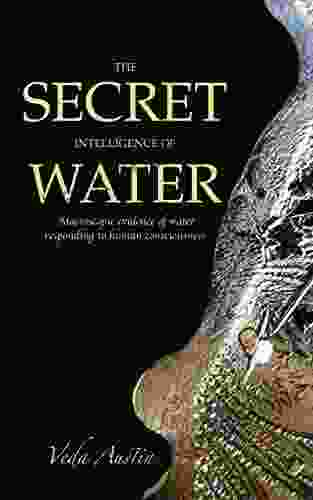
 Kenneth ParkerUnveiling the Secret Intelligence of Water: Exploring the Profound Impact of...
Kenneth ParkerUnveiling the Secret Intelligence of Water: Exploring the Profound Impact of... Floyd PowellThe Iconic Filmmaker And His Work: Exploring the Cinematic Masterpieces of...
Floyd PowellThe Iconic Filmmaker And His Work: Exploring the Cinematic Masterpieces of...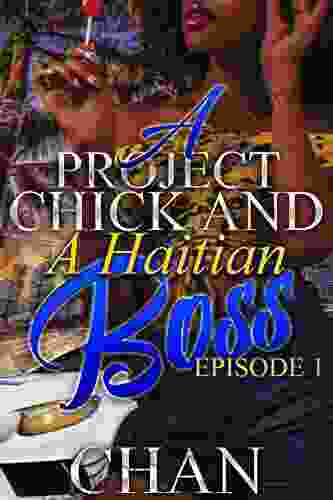
 Joshua ReedProject Chick And Haitian Boss: A Comprehensive Guide to the Haitian Hip-Hop...
Joshua ReedProject Chick And Haitian Boss: A Comprehensive Guide to the Haitian Hip-Hop...
 Kenneth ParkerThe Green Knight: An Exploration of Myth, Masculinity, and Identity in Iris...
Kenneth ParkerThe Green Knight: An Exploration of Myth, Masculinity, and Identity in Iris... William GoldingFollow ·3.1k
William GoldingFollow ·3.1k Dustin RichardsonFollow ·12.7k
Dustin RichardsonFollow ·12.7k Tyrone PowellFollow ·11.1k
Tyrone PowellFollow ·11.1k Nathaniel PowellFollow ·17.1k
Nathaniel PowellFollow ·17.1k Jayden CoxFollow ·18.1k
Jayden CoxFollow ·18.1k Anthony WellsFollow ·6.6k
Anthony WellsFollow ·6.6k VoltaireFollow ·19.3k
VoltaireFollow ·19.3k Dashawn HayesFollow ·3.4k
Dashawn HayesFollow ·3.4k
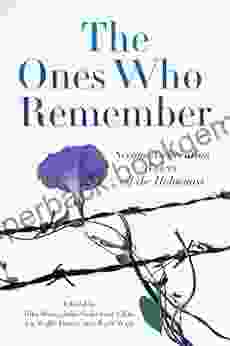
 Bryan Gray
Bryan GrayThe Second Generation: Voices of the Holocaust
The Holocaust was one of the most horrific...

 Douglas Foster
Douglas FosterWalking the Fields of the Newfoundland Dead
In the heart of the rolling countryside of...
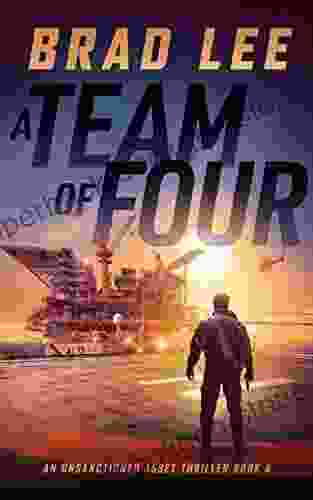
 Henry James
Henry JamesThe Unsanctioned Asset: A Gripping Thriller Set in a...
In the realm of espionage thrillers, The...
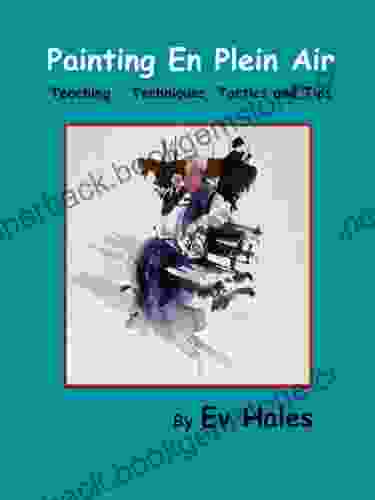
 Devon Mitchell
Devon MitchellPainting En Plein Air: Capturing the Essence of Nature on...
Painting en plein air, or painting...
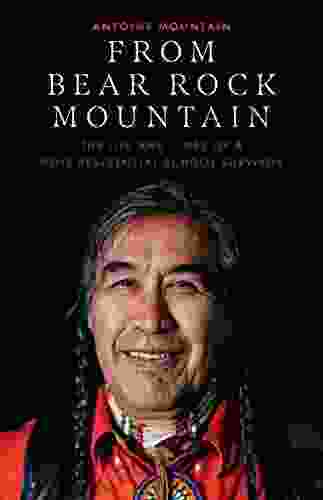
 Damon Hayes
Damon HayesThe Life and Times of Dene Residential School Survivor
Residential schools...
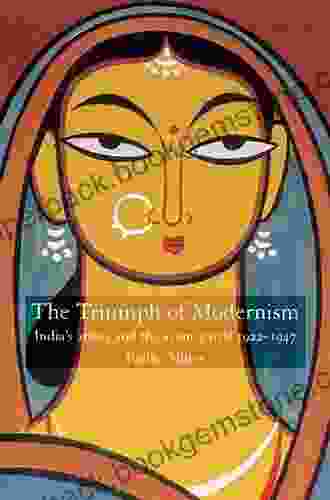
 Steve Carter
Steve CarterIndia Artists and the Avant Garde: 1922-1947
The term "avant-garde" is...
5 out of 5
| Language | : | English |
| File size | : | 6082 KB |
| Text-to-Speech | : | Enabled |
| Screen Reader | : | Supported |
| Enhanced typesetting | : | Enabled |
| Word Wise | : | Enabled |
| Print length | : | 320 pages |
| Lending | : | Enabled |


